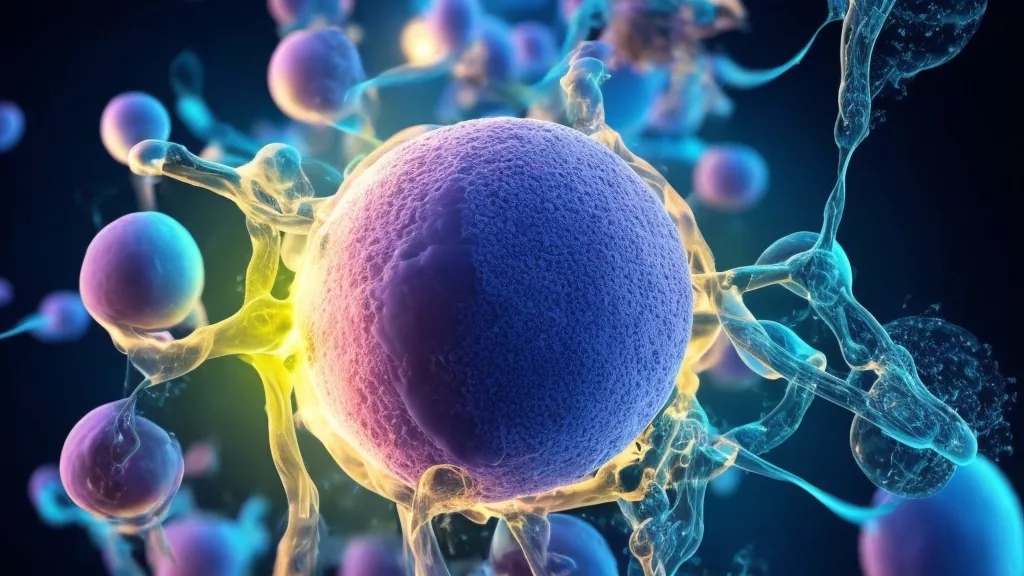Introduction
Cancer continues to be a formidable opponent in the realm of healthcare, affecting millions of lives worldwide. However, there is a silver lining amidst the darkness – advances in cancer treatment and immunotherapy are revolutionizing the way we approach this disease. From cutting-edge therapies to groundbreaking research, the field of oncology is witnessing a paradigm shift that offers hope to patients and their loved ones. In this article, we will delve into the remarkable advancements in cancer treatment and immunotherapy, exploring the potential they hold in transforming the landscape of cancer care.
Advances in Cancer Treatment and Immunotherapy
Advances in cancer treatment and immunotherapy have opened up a myriad of possibilities in combating this relentless disease. Let’s explore some of the most notable breakthroughs:
- Precision Medicine: Targeting Cancer at its Core
Precision medicine is a revolutionary approach that aims to tailor treatment strategies to individual patients based on their genetic makeup, lifestyle, and environmental factors. By analyzing the unique characteristics of a patient’s cancer cells, physicians can devise personalized treatment plans that are more effective and have fewer side effects. This individualized approach has transformed the way we treat cancer, leading to improved outcomes and better quality of life for patients. - Immunotherapy: Harnessing the Power of the Immune System
Immunotherapy has emerged as a game-changer in the field of cancer treatment. This groundbreaking approach stimulates the body’s immune system to recognize and attack cancer cells, effectively harnessing its natural defenses. Immune checkpoint inhibitors, such as pembrolizumab and nivolumab, have shown remarkable success in treating various types of cancer, including melanoma and lung cancer. By unleashing the power of the immune system, immunotherapy offers new hope for patients who previously had limited treatment options. - CAR-T Cell Therapy: Engineered Warriors against Cancer
CAR-T cell therapy represents a revolutionary breakthrough in cancer treatment. It involves genetically modifying a patient’s own immune cells, known as T cells, to express chimeric antigen receptors (CARs) that can recognize and target cancer cells. These engineered cells are then infused back into the patient, where they multiply and launch a potent attack against the cancer. CAR-T cell therapy has demonstrated remarkable success in treating certain types of leukemia and lymphoma, showcasing its potential to reshape cancer care. - Liquid Biopsies: Detecting Cancer with a Simple Blood Test
Traditional biopsies involve invasive procedures to collect tissue samples for cancer diagnosis. However, liquid biopsies have emerged as a less invasive and more convenient alternative. By analyzing fragments of tumor DNA that circulate in the bloodstream, liquid biopsies can provide valuable insights into the genetic makeup of cancer cells and monitor treatment response. This non-invasive approach has the potential to revolutionize cancer diagnosis, enabling early detection and personalized treatment decisions. - Targeted Therapies: Striking at the Heart of Cancer
Targeted therapies are designed to specifically attack cancer cells while sparing healthy cells, reducing side effects and increasing treatment efficacy. By identifying specific molecular alterations driving cancer growth, targeted therapies can disrupt the signaling pathways that fuel tumor progression. Drugs like imatinib, trastuzumab, and vemurafenib have demonstrated remarkable success in treating various types of cancer, revolutionizing the treatment landscape and improving patient outcomes. - Combination Therapies: A Synergistic Approach
Combining different treatment modalities has shown significant promise in improving cancer treatment outcomes. By targeting cancer cells through multiple mechanisms simultaneously, combination therapies can enhance the effectiveness of treatment and overcome resistance. For example, combining chemotherapy with immunotherapy has yielded promising results in various cancers, leading to improved response rates and survival outcomes. The synergistic effects of combination therapies offer new avenues for battling even the most aggressive forms of cancer.
Frequently Asked Questions (FAQs)
Here are some frequently asked questions about advances in cancer treatment and immunotherapy:
Q1: What is the role of immunotherapy in cancer treatment?
Immunotherapy harnesses the power of the immune system to recognize and attack cancer cells. It has shown remarkable success in treating various types of cancer and offers new hope for patients with limited treatment options.
Q2: How does precision medicine benefit cancer patients?
Precision medicine tailors treatment plans to individual patients based on their unique characteristics, resulting in more effective treatments and fewer side effects. It allows for personalized approaches that improve patient outcomes and quality of life.
Q3: What are liquid biopsies, and how do they contribute to cancer diagnosis?
Liquid biopsies involve analyzing fragments of tumor DNA in the bloodstream, providing insights into cancer genetics and treatment response. This non-invasive approach enables early detection, personalized treatment decisions, and monitoring of disease progression.
Q4: What is the significance of targeted therapies in cancer treatment?
Targeted therapies specifically attack cancer cells by disrupting the signaling pathways that drive tumor growth. They spare healthy cells, reduce side effects, and have shown remarkable success in treating various types of cancer.
Q5: How does CAR-T cell therapy work, and what cancers can it treat?
CAR-T cell therapy involves modifying a patient’s T cells to express receptors that can recognize and target cancer cells. It has demonstrated success in treating certain types of leukemia and lymphoma and holds promise for other cancers as well.
Q6: How can combination therapies improve cancer treatment outcomes?
Combining different treatment modalities, such as chemotherapy and immunotherapy, can enhance treatment effectiveness and overcome resistance. Combination therapies offer synergistic effects and new avenues for battling aggressive forms of cancer.
